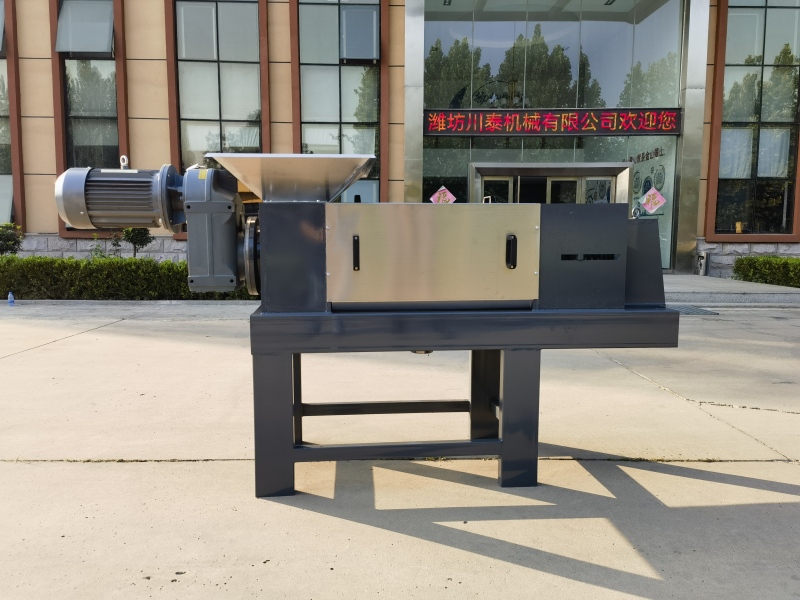
In the wine production industry, the management of by-products is a crucial aspect of ensuring sustainability and reducing environmental impact. One such by-product is wine residue, which includes grape skins, seeds, and stems left after the wine-making process. To address the challenges associated with wine residue management, the wine industry has embraced innovative solutions, and one such technology gaining prominence is the Wine Residue Dewatering Machine.
Key Features:
The Wine Residue Dewatering Machine is designed to efficiently separate liquid from solid components in wine residue, resulting in a drier and more manageable by-product. This machine incorporates advanced engineering principles to streamline the dewatering process, offering several key features:
High Dewatering Efficiency:
The machine employs a specialized mechanism to extract a significant amount of moisture from the wine residue, leading to a reduction in overall volume.
High dewatering efficiency ensures a more concentrated and economically viable by-product.
Versatility in Residue Types:
The machine is adaptable to various types of wine residues, accommodating differences in composition and viscosity.
It can effectively process grape skins, seeds, and stems, providing wineries with a versatile solution for their by-product management.
User-Friendly Operation:
Designed with user convenience in mind, the machine features a user-friendly interface and straightforward controls.
Operators can easily monitor and adjust dewatering parameters, optimizing the process for different batches of wine residue.
Cost-Effective and Sustainable:
By reducing the moisture content in wine residue, the machine contributes to cost savings related to transportation and disposal.
The dewatered residue can be repurposed for various applications, such as composting or as a valuable ingredient in other products.
Compact Design:
The machine is engineered with a compact footprint, making it suitable for wineries with limited space.
Its modular design allows for easy integration into existing wine production processes without significant modifications.
Benefits to Wineries:
Waste Reduction: The Wine Residue Dewatering Machine aids in minimizing waste by efficiently extracting moisture, leading to a reduction in the volume of by-products.
Cost Savings: Wineries can benefit from reduced transportation and disposal costs associated with drier and more concentrated residues.
Environmental Sustainability: By effectively managing wine residues, wineries contribute to environmental sustainability by minimizing their ecological footprint.
Conclusion:
The Wine Residue Dewatering Machine emerges as a valuable asset for wineries seeking efficient and sustainable solutions for by-product management. Its innovative design, high dewatering efficiency, and user-friendly operation make it a key technology in the ongoing efforts to enhance the environmental sustainability of the wine production process.




If your company wants to establish a business relationship with us, please briefly describe the cooperation intention and send an email to:chuantaiscrewpress@gmail.com























































































![[list:title]](/static/upload/image/20240528/1716877114510915.jpg)